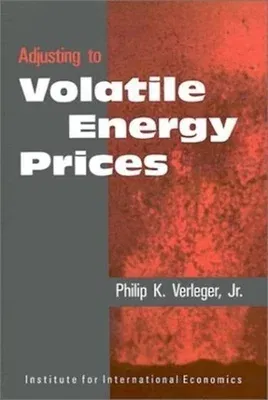Philip Verleger Jr
(Author)Adjusting to Volatile Energy PricesPaperback, 1 November 1994

Qty
1
Turbo
Ships in 2 - 3 days
In Stock
Free Delivery
Cash on Delivery
15 Days
Free Returns
Secure Checkout

Part of Series
Policy Analyses in International Economics
Print Length
292 pages
Language
English
Publisher
Peterson Institute for International Economics
Date Published
1 Nov 1994
ISBN-10
0881320692
ISBN-13
9780881320695
Description
Product Details
Author:
Book Format:
Paperback
Country of Origin:
US
Date Published:
1 November 1994
Dimensions:
22.91 x
15.39 x
1.37 cm
ISBN-10:
0881320692
ISBN-13:
9780881320695
Language:
English
Location:
New York
Pages:
292
Weight:
399.16 gm